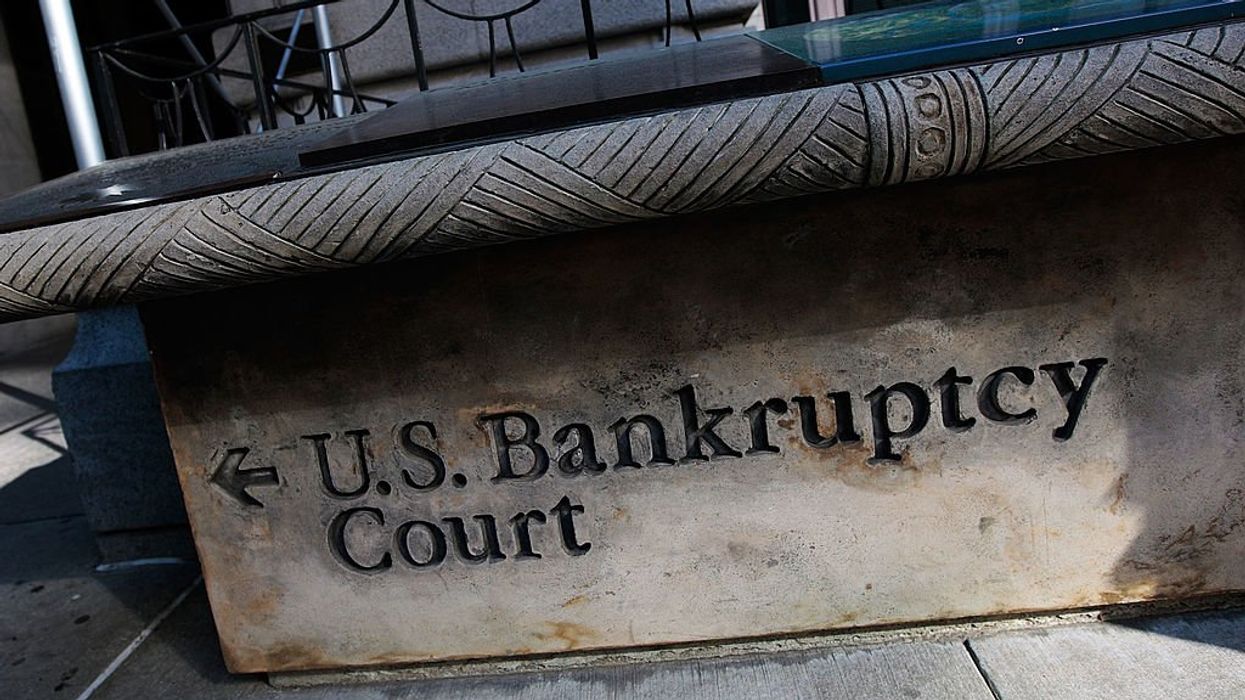GLENN: Do you remember during the Tea Party movement at its height, where the IRS started playing games with people's information? And imagine if during the -- the Tea Party days, if you had gone to the 9/12 Project and you had just searched or you had gone to a Tea Party website and you had just searched and you had maybe posted. And then some people go out and they start to do something violent.
Should the government be able to have the names, the IP addresses, and the search history of everyone who went to that website?
This is what's being debated right now. But it's being debated not with a 9/12 Project or a Tea Party project. It's something that would make a lot of people on the right happy, I guess. Disrupt J20. That was the group that disrupted the inauguration of Donald Trump.
Now the government has arrested 200 people under felony rioting. But the government wants the IP addresses, the emails, and the history of anyone who engaged with these people through the website, Disrupt J20. Should they have that right? And how would you feel if the situation were reversed?
STU: We've talked a lot about these lines and how they're drawn with the government and how it relates to your data. Wanted to get someone who really knows these things, the ins and outs of it. Saul Hansel is a former technology reporter at the New York Times. He's now the managing director at Media Paradox Labs.
GLENN: So, Saul, you wrote about this in 2008, about your -- your op-ed was, one subpoena is all it takes to reveal your online life.
We're entering a new world here. Are we not?
SAUL: The world even in the nine years since I wrote that, the amount of information about you that is online somewhere, sent up by your cell phone about your location, all the questions you ask Siri, all sorts of other things, is exponentially higher.
So what you said at the introduction is I think critical here: We've got to be very thoughtful in drawing some lines so that prosecutors can do the right things, but not be searching everything about everybody, which is available to them now.
GLENN: So, is all, here's the problem that I think we have in society right now: We are divided into two camps. And I think they are bogus camps. Both of them. I think they both are in many ways opting for the same thing. Because when it's their side that has the power, they're all for it. When they're on the receiving side, they're all against it.
We have a job to do to try to convince people on both sides, you don't want to give the power like this to the government, ever.
How do we do that?
SAUL: You know, I think that the way you introduce this, where you said to people who might have identified with one group and against the other, that things switch, right? We know that there is a history of governments snooping on people, where they shouldn't. The FBI, you know, tracking the extra marital affairs of Martin Luther King. All kinds of things where governments do what they shouldn't do. That seems bad. But there are really horrible criminals that blow things up and kill people, and that's bad. And the art here, right? The Fourth Amendment says, the right of people to be secure against unreasonable searches and seizures shall not be violated without probable cause. So there's a -- a line here that has become very, very difficult in a world of digital information.
GLENN: We were -- you know, the Fourth Amendment was written at a time when people were using quickly pens. And so it's easy for people to say, "Well, no, I wrote that. And that's my paper." What are you doing? You can't go through my desk. You just can't come in here.
However, everything we have -- literally everything we have and done and thought and searched and questioned, everything is now up in a cloud. And it is stored forever. And there is some disconnect with people on the Fourth Amendment, if it's on the cloud. And people will make the excuse, well, I'm not looking for some -- I'm not doing anything wrong.
I don't have a problem if they look at everything. That's insanity.
SAUL: You know, the law has made a distinction. Right? Between things that are public, things that are private and personal -- you know, in your house. And things that are sort of intermediate. Like a business record.
So a cop can go up to a dry cleaner and say, you know, with a certain amount of subpoena power, did so-and-so dry clean a suit at this date? A much higher standard applies to going into your house and looking in the pockets of your suit, right? The business record was seen as something that's not quite public, but not a secret.
The problem is, as you say, we're not printing our secrets, things you might not even keep in your desk drawer, you might keep in your Gmail account or in your, you know, online files. Or are in the photographs that you don't even know have been backed up to somebody's server. And so at a minimum, I think the policy issue is, should we treat the cloud extensions of our life with the same protections that we treat things in our homes, in our personal privacy?
That's a question that I don't think law enforcement wants to ask. Because they like it this way. They get more stuff than ever. But I think it's a good discussion to have.
STU: And it's a tough thing, is all. Because if there is an attack. If there is some crime, people are going to want it solved. They're going to want the law enforcement to have these tools at their disposal.
SAUL: Yep.
STU: And it's always going to be more powerful to say, this person could have been saved. Their life could have been saved if we had these powers.
SAUL: Yep.
STU: And I don't know the story of, well, the government searched too much through my Gmail is going to convince people the other way.
How do you get people kind of across that line and to understand that it's really a bigger issue than that?
Because this is everything you've ever thought. They can prove in lawsuits, things that you made in jokes. They can tie to whatever they're accusing you of now. There's a real big consequence of this.
SAUL: Right. You know, Glenn said earlier, you know, people say, my life is an open book. What does it matter? And, you know, that's true. You know, most people are really boring most of the time.
GLENN: Yes.
SAUL: But every now and then, right? Some set of things happens that you either have a real secret. Maybe even not --
GLENN: Or, you know, may I suggest this? Saul, I know I'm different. But I don't think -- there's probably just more frequency of this. Because of what I do, probably because of what you do, I'm searching for all kinds of crazy stuff.
SAUL: Sure.
GLENN: And I'm looking up mass murder and everything else. And you could, if you had access to all of my life, you could assemble things and say, well, look at the picture we have here, Mr. Beck. And I would then be in the situation where I would have to explain, no, that's not what it is. That's not -- no. And so it -- you don't want people to be able to come in and assemble parts of your life, even if you don't have something to hide, which we all do. Even if you don't have something to hide, when somebody has all of your information, they can assemble it in very nefarious ways, should they choose.
SAUL: Yes. So they can find, you know, inadvertent things or misleading things. And we also have a general, you know, standard here, that cops need to know what they're looking for, and they can't use a search for one thing as a way to fish around to see -- you know, there must be something this guy did wrong. Right?
And what you described is absolutely true. What they're going to do in this case -- right? Because there's a -- there's supposedly a compromise the courts are imposing. But I think it has the risk you're pointing out. Which is the government is going to go search through a bunch of emails among people who are involved in this, you know, disrupt website for certain terms. Bombs or violence or riot or whatever they want. And then they get to read those emails.
And guess what, those are emails by people who they didn't expect and may not, in fact -- maybe have used the word riot in a completely different context. And suddenly the emails are read. And somebody might notice something else. And it can be used by, you know, the government to harass the centers or do all kinds of bad things. So I -- what Stu said. Yes. If I was searching every email that was sent by anybody in the world in the two weeks before 9/11 and maybe I could figure out who did something, you know, or I searched for key words, you know, you might have prevented something really bad. But is that a price you're willing to pay to let the government go on phishing?
GLENN: No. No. It's not for me.
I was -- I had a conversation with Eric Schmidt from Google.
SAUL: Yeah.
GLENN: And he said -- and he's said this publicly a few times. I don't remember the year. But I think it was like 2025 or something like that. He said, "People's lives will be so open and so destroyed by what they have put out online, just haphazardly, or not even thinking, that they'll actually have to change their name by the time they're 25 years old."
I don't think people understand the world is changing and how dramatically things are going to change.
SAUL: You know, I have teenage daughters. And basically, my advice to them is be careful about secrets. You can have some. But you shouldn't have very many. You should -- you know, think about them carefully, and preserve them. And you should make them only analogue. Right? Once you make it digital, it's not a secret.

















